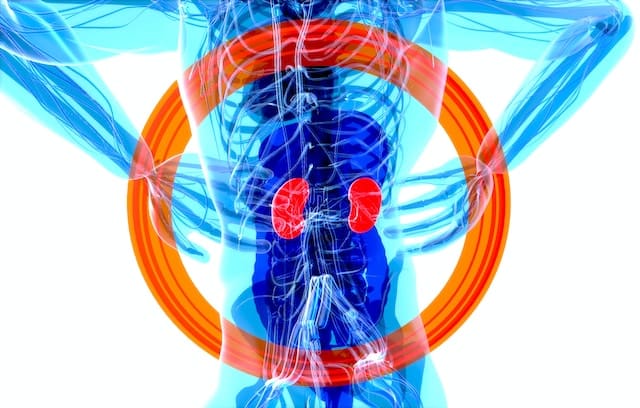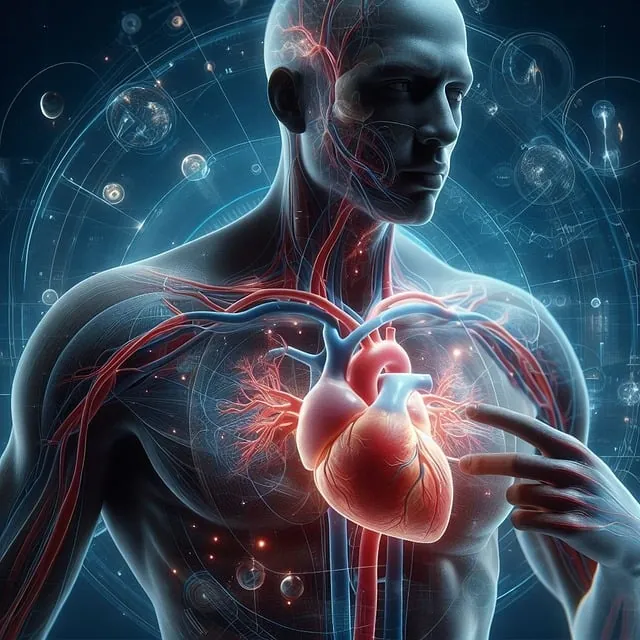Nutrient deficiency, while it sounds quite clinical, is simply your body running low on the vitamins and minerals it needs to function at its best. Ignoring these signals can lead to a domino effect of health issues, some of which can become serious over time. The trick is to tune in early.
Catching these signs before they snowball into bigger problems is crucial. It’s about understanding that every headache, spell of dizziness, or unexpected fatigue might be more than just a bad day; it could be your body asking for help. So, let’s start paying attention and give our bodies what they need to keep us healthy and happy.
Key Takeaways
- Magnesium: A multitasker that aids in over 300 biochemical reactions in the body.
- Copper: Supports neurological function, cardiovascular and immune system health, iron absorption, and the development of strong connective tissue.
- Vitamin E: Powerful antioxidant, protecting cells from damage, supporting immune function, and contributing to healthy skin and eyes.
- Vitamin D: Essential for bone health and immune function.
- Vitamin B12: Critical for nerve function and the production of DNA and red blood cells.
Table of Contents
These nutrients are the backbone of good health, playing roles that affect everything from your energy levels to your mood.
Every bite of food we take is a chance to fuel our bodies with essential nutrients, those magic ingredients that keep everything running smoothly. These nutrients are the unsung heroes of our body’s daily operations, supporting everything from our heartbeat to our ability to think and move.
Recognizing the Signs of Nutrient Deficiency
Persistent Fatigue and Its Underlying Causes
Silent threats to well-being – Nutritional deficiencies can have serious consequences if ignored. Arm yourself with knowledge by recognizing early signs that your nutrition may be off track. 🍏🔍#nutrientdeficiency pic.twitter.com/H1L9TQiyGf
— Dr Carolyn Dean (@DrCarolynDean) January 26, 2024
Feeling like you’re constantly running on empty? Persistent fatigue could be more than just the result of a busy schedule. It’s often a sign your body is lacking essential nutrients like iron, vitamin D, and the B vitamins.
These nutrients are key players in energy production and when levels dip, so does your vitality. Imagine your body as a car; without the right fuel, it’s not going to get far. Replenishing these vital nutrients can help you shift from sluggish to energetic.
Unexplained Weight Changes: A Nutrient Perspective
Ever stepped on the scale and been surprised by the number staring back at you? Sudden weight fluctuations can be baffling and frustrating. Before you blame it all on your diet or workout routine, consider a nutrient imbalance.
Both weight gain and loss can stem from deficiencies in nutrients that regulate metabolism and appetite, such as iodine, magnesium, and vitamin D. Like a finely tuned scale, your body needs balance to maintain a healthy weight.
The Pain Signal: What Persistent Pain Tells Us

If you’re dealing with aches and pains that won’t quit, your body might be sounding the alarm on a vitamin D deficiency. Known as the “sunshine vitamin,” vitamin D plays a crucial role in bone health and inflammation reduction. Without enough of it, you might find yourself feeling like an old door hinge in need of oiling.
Chronic pain, especially in the bones and back, can often be alleviated by getting your vitamin D levels back on track.
Digestive Changes and Nutrient Absorption
When your digestive system is out of whack, it’s more than just uncomfortable—it can be a sign of trouble on the nutrient front. Changes in bowel habits, like constipation or diarrhea, might indicate deficiencies in trace minerals, magnesium, and water.
It’s a complex dance; not only do you need to consume the right nutrients, but your body also needs to absorb them effectively. Keeping an eye on your gut health can help ensure your nutrient uptake is up to par.
The Skin as a Mirror: Decoding Messages on Nutrient Needs

Your skin is your body’s largest organ and one of the first to show signs when something’s amiss nutritionally. Dry, flaky skin might indicate a lack of essential fatty acids, while bruises that appear easily could point to a deficiency in vitamin C or K.
Even your skin’s elasticity and its ability to bounce back from sun damage can be affected by your nutrient intake. Like a canvas reflecting your internal health, your skin gives cues worth listening to.
Breathing Difficulties and Nutrient Connections
Ever felt winded after just a short walk? Before you blame your fitness level, consider your nutrient intake. Iron and vitamin B12 play critical roles in oxygen transport and energy production.
A deficiency in either can lead to anemia, making physical tasks feel Herculean. By ensuring your diet includes these essential nutrients, you can keep your oxygen flow strong and reduce breathlessness.
Vision Changes and Nutrient Deficiency

Blurry vision or trouble seeing at night can be alarming. These symptoms may signal deficiencies in vitamin A and zinc, nutrients crucial for maintaining eye health and vision.
Vitamin A helps preserve the cornea, while zinc plays a role in transporting vitamin A from the liver to the eye. Keeping these nutrients in check can help you maintain your eagle eyes and avoid the foggy view.
Mental Health Fluctuations and Nutrient Deficiency
The brain-gut connection is real, and it plays a pivotal role in our mental health. Fluctuations in mood, increased anxiety, or a clouded mind can often be linked back to deficiencies in B vitamins, omega-3 fatty acids, and vitamin D.
These nutrients are crucial for brain function, supporting neurotransmitter synthesis and protecting against inflammation. Nourishing your body with these brain-boosting nutrients can be a step towards stabilizing your mood and clearing the mental fog.
Potential Causes of Nutritional Deficiency
| Vegetarian or Vegan Diet | Vegetarian and vegan diets may be deficient in certain nutrients like vitamin B12, iron, zinc, calcium, omega-3 fatty acids, creatine, carnosine, taurine |
| Malabsorption Issues | Conditions such as celiac disease, Crohn’s disease, and inflammatory bowel disease can impair nutrient absorption in the intestines, leading to deficiencies despite adequate dietary intake |
| Medications | Certain medications, such as proton pump inhibitors, antacids, and some antibiotics, can interfere with the absorption of vitamins and minerals, increasing the risk of deficiencies |
| Alcoholism | Alcohol consumption can interfere with nutrient absorption, impair liver function, and deplete the body’s stores of essential vitamins and minerals, leading to deficiencies |
| Digestive Disorders | Digestive disorders like gastritis, gastroparesis, and pancreatitis can affect the production of digestive enzymes and hinder nutrient absorption, contributing to deficiencies |
| Chronic Illness | Chronic illnesses such as diabetes, kidney disease, liver disease, and cancer can increase nutrient requirements or impair nutrient utilization, leading to deficiencies over time |
| Pregnancy and Breastfeeding | During pregnancy and breastfeeding, nutrient demands increase to support fetal growth and lactation. Without adequate intake, pregnant and breastfeeding individuals may become deficient in essential nutrients. |
| Age-related Factors | As people age, their ability to absorb certain nutrients may decline. Additionally, older adults may have reduced appetite, altered taste perception, and medication interactions that contribute to nutrient deficiencies |
| Stress and Lifestyle Factors | Chronic stress, smoking, excessive caffeine intake, and inadequate sleep can affect nutrient metabolism and increase nutrient requirements, potentially leading to deficiencies |
Understanding these various factors can help individuals identify potential risks for nutrient deficiencies and take proactive steps to maintain optimal nutritional status. It’s essential to consult with a healthcare professional for personalized guidance and recommendations tailored to individual needs.
Combatting Nutrient Deficiency: Practical Strategies
Tackling nutrient deficiencies doesn’t have to be a daunting task. With the right knowledge and a bit of effort, you can steer your health back on course. Here’s how to combat common deficiencies through dietary adjustments, supplementation, and lifestyle changes.
Dietary Adjustments
To counteract nutrient deficiency, prioritize whole foods rich in dietary requirements. The optimal approach would be to aim to get the highest amount of nutrients relative to the amount of calories while avoiding unhealthy and potentially problematic compounds like oxalates, lectins, and phytates.
While there may be numerous conflicting opinions most evidence points to an omnivorous diet, with minimal processing and as close to natural form as possible.
That being said animal foods tend to be very nutrient-dense, highly bioavailable without problematic chemicals.
| Nutrient | Signs and Symptoms of Deficiency | Sources |
|---|---|---|
| Copper | Anemia, fatigue, weakness, brittle bones, pale skin, frequent infections, neurological issues | Organ meats (liver), shellfish (oysters, crab), Vitamin C Complex, Bee Pollen, Spirulina |
| Potassium | Muscle weakness and cramps, fatigue, irregular heartbeat, high blood pressure, constipation | Fish, Meat, Dairy, Shellfish, Eggs |
| Fatty Acids | Dry, scaly skin, brittle hair and nails, poor wound healing, mood swings, cognitive decline | Fatty fish (salmon, mackerel, sardines), Eggs, Cod Liver Oil |
| Trace Minerals | Hair loss, weakened immune system, slow wound healing, skin problems, fatigue | Meat, shellfish, Brazil nuts, seafood (oysters, tuna), nuts and seeds, legumes, dairy products |
| Vitamin E | Muscle weakness, vision problems, impaired immune function, nerve damage, anemia | Anatto, Red Palm Oil, Wheat Germ Oil |
| Boron | Bone weakness, arthritis, poor wound healing, cognitive impairment, hormone imbalances | Nuts (almonds, walnuts), dried fruits (prunes, raisins), avocados, legumes, whole grains |
| Choline | Fatty liver disease, muscle damage, cognitive decline, impaired brain development in infants | Liver, eggs, salmon, chicken breast |
| Vitamin D | Bone pain, muscle weakness, fatigue, frequent infections, depression, hair loss, impaired wound healing | Cod Liver Oil, Fatty fish (salmon, mackerel, sardines), egg yolks, sunlight exposure |
| Vitamin B12 | Fatigue, weakness, numbness or tingling in hands and feet, difficulty walking, memory problems, mood disturbances | Meat, poultry, fish, dairy products, eggs |
| Magnesium | Muscle cramps, tremors, fatigue, irritability, nausea, vomiting, abnormal heart rhythms, low blood pressure | Leafy greens, dark chocolate |
| Vitamin C | Fatigue, weakness, swollen and bleeding gums, joint pain, easy bruising, slow wound healing | Acerola, camu camu, amla, citrus fruits, bell peppers, strawberries |
| Zinc | Hair loss, poor wound healing, impaired sense of taste and smell, frequent infections, diarrhea, poor appetite, delayed growth | Meat, shellfish (oysters, crab), dairy products, nuts, seeds, |
| Iodine | Fatigue, weight gain, swelling of the thyroid gland (goiter), dry skin, hair loss, cold intolerance, cognitive impairment | Seaweed, fish, dairy products, eggs |
| Vitamin A | Night blindness, dry eyes, frequent infections, poor wound healing, dry skin, impaired growth | Liver, dairy products, eggs, orange and green vegetables |
| Folate | Fatigue, weakness, shortness of breath, irritability, forgetfulness, poor concentration, increased risk of neural tube defects | Liver, leafy greens |
Lifestyle Changes
Nutrient absorption can be significantly influenced by your lifestyle.
- Regular physical activity can boost the body’s ability to absorb and utilize essential vitamins and minerals.
- Reducing stress through meditation, yoga, or other relaxation techniques can also enhance digestive health, promoting better nutrient uptake.
- Eliminating alcohol intake and quitting smoking are critical steps, as these habits can impair the absorption of dietary nutrients and lead to chronic symptoms of deficiency.
Remember, listening to your body’s health signals is vital. Chronic symptoms should not be ignored, as they might indicate a deeper issue. Implementing these strategies can help you achieve a nutritional balance, supporting overall health and well-being.
Supplementation
Sometimes, dietary changes alone aren’t enough to address certain deficiencies. Nutrition of vegetables has been decreasing consistently over time (Workinger, et al. 2018). Supplementation can play a key role in health intervention, especially for nutrients hard to obtain in sufficient amounts from food alone.
Minerals like boron, magnesium and copper, crucial for bone and neurological health, might be added via supplements.
In conclusion, understanding the signs of nutrient deficiency is crucial for maintaining optimal health and well-being. By listening to our bodies and recognizing the subtle cues they provide, we can address deficiencies early on and make necessary dietary adjustments. Remember, consulting with a healthcare professional is key for proper diagnosis and treatment. With a balanced diet rich in nutrient-dense foods, we can nourish our bodies and thrive. Let’s prioritize our health and empower ourselves to live our best lives.
Individual symptoms can be helpful indicators but one should seek the advice of a medical health professional before any health-related intervention.
Frequently Asked Questions
How can I tell if I have a nutrient deficiency?
To determine if you have a nutrient deficiency, pay attention to signs like fatigue, muscle weakness, brittle nails, and frequent infections. Consulting with a healthcare professional and getting blood tests can also help identify deficiencies.
What are the symptoms of vitamin B12 deficiency?
Symptoms of vitamin B12 deficiency include fatigue, weakness, numbness or tingling in the hands and feet, difficulty walking, memory problems, and mood disturbances. If you experience these symptoms, consult with a healthcare professional for evaluation and treatment.
What are the signs of magnesium deficiency?
Signs of magnesium deficiency include muscle cramps, tremors, fatigue, irritability, nausea, vomiting, abnormal heart rhythms, and low blood pressure. Consulting with a healthcare professional can help confirm if you have a magnesium deficiency.
How do I identify vitamin C deficiency?
Vitamin C deficiency can lead to symptoms such as fatigue, weakness, swollen and bleeding gums, joint pain, easy bruising, and slow wound healing. If you suspect you have a vitamin C deficiency, consult with a healthcare provider for proper evaluation and guidance.
What are the symptoms of zinc deficiency?
Symptoms of zinc deficiency include hair loss, poor wound healing, impaired sense of taste and smell, frequent infections, diarrhea, poor appetite, and delayed growth in children. Consulting with a healthcare provider can help diagnose and address zinc deficiency.
How can I recognize iodine deficiency?
Signs of iodine deficiency include fatigue, weight gain, swelling of the thyroid gland (goiter), dry skin, hair loss, cold intolerance, and cognitive impairment. If you suspect you have an iodine deficiency, consult with a healthcare professional for evaluation and guidance.
What are the signs of vitamin A deficiency?
Vitamin A deficiency can lead to symptoms such as night blindness, dry eyes, frequent infections, poor wound healing, dry skin, and impaired growth and development in children. If you experience these symptoms, seek guidance from a healthcare provider for proper assessment and treatment.
How can I identify copper deficiency?
Copper deficiency may manifest as anemia, fatigue, weakness, brittle bones, pale skin, frequent infections, and neurological issues. Best sources include shellfish, organ meats, nuts, seeds, whole grains, and dark chocolate.
How do I recognize vitamin E deficiency?
Symptoms of vitamin E deficiency include muscle weakness, vision problems, impaired immune function, nerve damage, and anemia. Best sources include nuts, seeds, vegetable oils, spinach, avocado, and wheat germ.
How can I tell if I’m lacking in fatty acids?
Fatty acids deficiency may present as dry, scaly skin, brittle hair and nails, poor wound healing, mood swings, and cognitive decline.
Research
Alvarez-Leite, J.I., 2004. Nutrient deficiencies secondary to bariatric surgery. Current Opinion in Clinical Nutrition & Metabolic Care, 7(5), pp.569-575.
https://pubmed.ncbi.nlm.nih.gov/15295278/
Andrès, E., Federici, L., Serraj, K. and Kaltenbach, G., 2008. Update of nutrient-deficiency anemia in elderly patients. European Journal of Internal Medicine, 19(7), pp.488-493.
https://pubmed.ncbi.nlm.nih.gov/19013375/
Bailey RL, West KP Jr, Black RE. The epidemiology of global micronutrient deficiencies. Ann Nutr Metab. 2015;66 Suppl 2:22-33. doi: 10.1159/000371618. Epub 2015 Jun 2. PMID: 26045325.
https://pubmed.ncbi.nlm.nih.gov/26045325/
Bhardwaj RL, Parashar A, Parewa HP, Vyas L. An Alarming Decline in the Nutritional Quality of Foods: The Biggest Challenge for Future Generations' Health. Foods. 2024 Mar 14;13(6):877. doi: 10.3390/foods13060877. PMID: 38540869; PMCID: PMC10969708.
https://pubmed.ncbi.nlm.nih.gov/38540869/
Brody T. Nutritional Biochemistry. 2nd ed. San Diego: Academic Press; 1999.
Chen, Y., Michalak, M. and Agellon, L.B., 2018. Focus: Nutrition and food science: Importance of nutrients and nutrient metabolism on human health. The Yale journal of biology and medicine, 91(2), p.95.
https://www.ncbi.nlm.nih.gov/pmc/articles/PMC6020734/
Grotto D, Zied E. The Standard American Diet and its relationship to the health status of Americans. Nutr Clin Pract. 2010 Dec;25(6):603-12.
https://pubmed.ncbi.nlm.nih.gov/21139124/
Hambidge, M., 2000. Human zinc deficiency. The Journal of nutrition, 130(5), pp.1344S-1349S.
Hunt JR. Bioavailability of iron, zinc, and other trace minerals from vegetarian diets. Am J Clin Nutr. 2003 Sep;78(3 Suppl):633S-639S. doi: 10.1093/ajcn/78.3.633S. PMID: 12936958.
Jensen, G.L. and Binkley, J., 2002. Clinical manifestations of nutrient deficiency. Journal of Parenteral and Enteral Nutrition, 26, pp.S29-S33.
Martiniakova M, Babikova M, Mondockova V, Blahova J, Kovacova V, Omelka R. The Role of Macronutrients, Micronutrients and Flavonoid Polyphenols in the Prevention and Treatment of Osteoporosis. Nutrients. 2022 Jan 25;14(3):523. doi: 10.3390/nu14030523. PMID: 35276879; PMCID: PMC8839902.
McBurney, M.I., Blumberg, J.B., Costello, R.B., Eggersdorfer, M., Erdman Jr, J.W., Harris, W.S., Johnson, E.J., Hazels Mitmesser, S., Post, R.C., Rai, D. and Schurgers, L.J., 2021. Beyond nutrient deficiency—opportunities to improve nutritional status and promote health modernizing DRIs and supplementation recommendations. Nutrients, 13(6), p.1844.
https://www.crnusa.org/
Negri E, Franceschi S, Bosetti C, Levi F, Conti E, Parpinel M, La Vecchia C. Selected micronutrients and oral and pharyngeal cancer. Int J Cancer. 2000 Apr 1;86(1):122-7.
Ogawa Y, Kawamura T, Shimada S. Zinc and skin biology. Arch Biochem Biophys. 2016 Dec 1;611:113-119. doi: 10.1016/j.abb.2016.06.003. Epub 2016 Jun 7. PMID: 27288087.
Pauling L. Orthomolecular psychiatry. Varying the concentrations of substances normally present in the human body may control mental disease. Science. 1968 Apr 19;160(3825):265-71.
https://pubmed.ncbi.nlm.nih.gov/5641253/
Prasad, R., 2012. Micro mineral nutrient deficiencies in humans, animals and plants and their amelioration. Proceedings of the National Academy of Sciences, India Section B: Biological Sciences, 82, pp.225-233.
Riordan, H.D., Mikirova, N., Taylor, P.R., Feldkamp, C.A. and Casciari, J.J., 2012. The effects of a primary nutritional deficiency (Vitamin B study). Food and Nutrition Sciences, 3(9), p.1238.
Seybolt SE. Is it time to reassess alpha lipoic acid and niacinamide therapy in schizophrenia? Med Hypotheses. 2010 Dec;75(6):572-5.
Singh, H. and Bharti, J., 2021. Incredibly Common Nutrient Deficiencies. EAS Journal of Nutrition and Food Sciences, 3(6), pp.175-178.
Stevens GA, Bennett JE, Hennocq Q, Lu Y, De-Regil LM, Rogers L et al. Trends and mortality effects of vitamin A deficiency in children in 138 low-income and middle-income countries between 1991 and 2013: a pooled analysis of population-based surveys. Lancet Glob Health. 2015;3:e528–36. doi:10.1016/S2214-109X(15)00039-X.
Subedi BH, Joshi PH, Jones SR, Martin SS, Blaha MJ, Michos ED. Current guidelines for high-density lipoprotein cholesterol in therapy and future directions. Vasc Health Risk Manag. 2014 Apr 8;10:205-16.
Welch, R.M., 2002. The impact of mineral nutrients in food crops on global human health. Plant and Soil, 247, pp.83-90.
Weitberg AB. Effect of nicotinic acid supplementation in vivo on oxygen radical-induced genetic damage in human lymphocytes. Mutat Res. 1989 Aug;216(4):197-201.
Workinger JL, Doyle RP, Bortz J. Challenges in the Diagnosis of Magnesium Status. Nutrients. 2018 Sep 1;10(9):1202. doi: 10.3390/nu10091202. PMID: 30200431; PMCID: PMC6163803.
https://www.ncbi.nlm.nih.gov/pmc/articles/PMC6163803/
WHO. Global prevalence of vitamin A deficiency in populations at risk 1995-2005. WHO global database on vitamin A deficiency. Geneva: World Health Organization; 2009 (http://whqlibdoc.who.int/publications/2009/9789241598019_eng.pdf).
WHO. Xerophthalmia and night blindness for the assessment of clinical vitamin A deficiency in individuals and populations. WHO/NMH/NHD/EPG/14.4. Geneva: World Health Organization; 2014 (http://apps.who.int/iris/bitstream/10665/133705/1/WHO_NMH_NHD_EPG_14.4_eng.pdf).
Willer, D.F. and Aldridge, D.C., 2020. Vitamin bullets. microencapsulated feeds to fortify shellfish and tackle human nutrient deficiencies. Frontiers in Nutrition, 7, p.102.
Zeisel, S.H., 2000. Choline: an essential nutrient for humans. Nutrition, 16(7-8), pp.669-671.
Zell M, Grundmann O. An orthomolecular approach to the prevention and treatment of psychiatric disorders. Adv Mind Body Med. 2012 Fall;26(2):14-28.



















